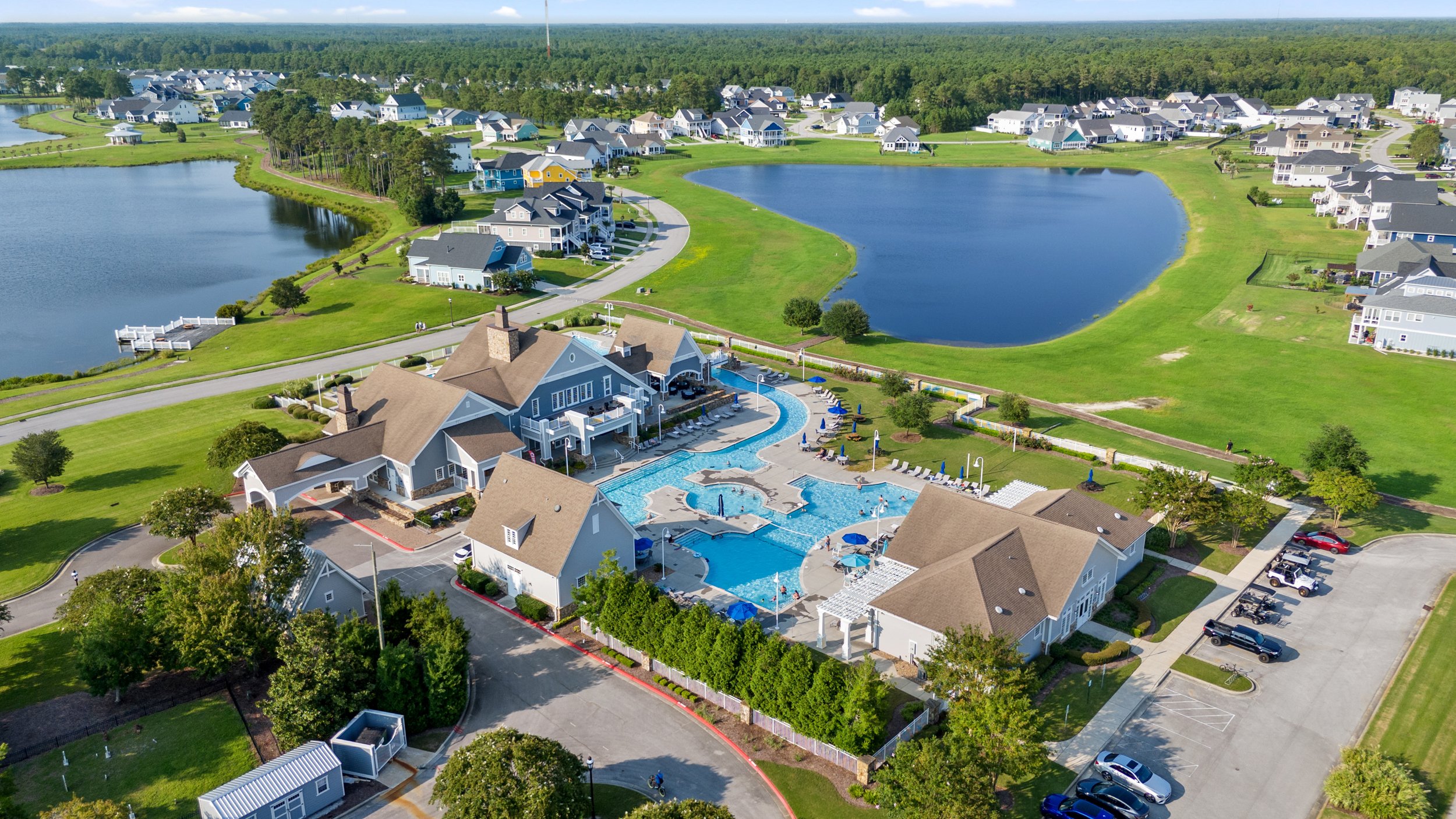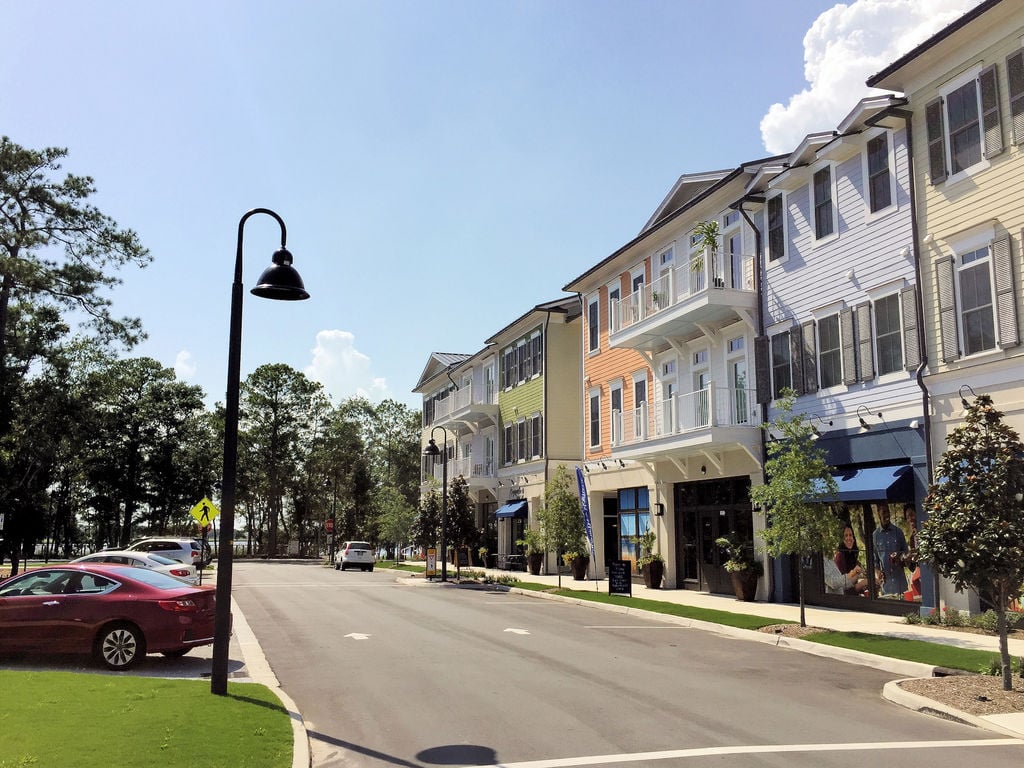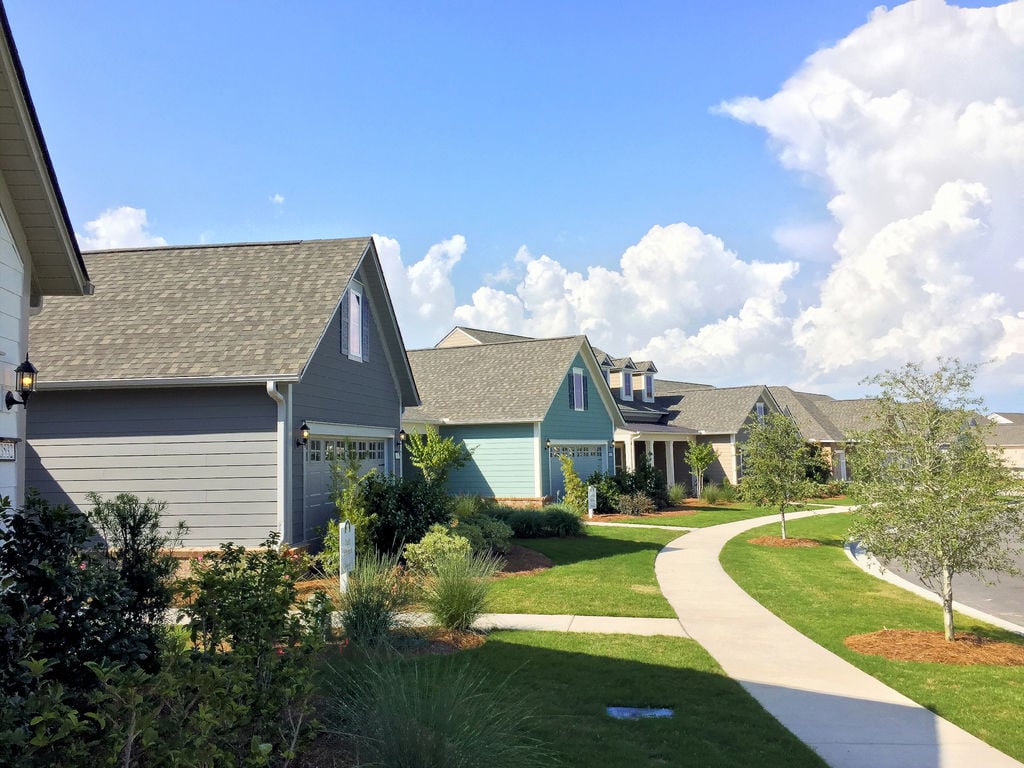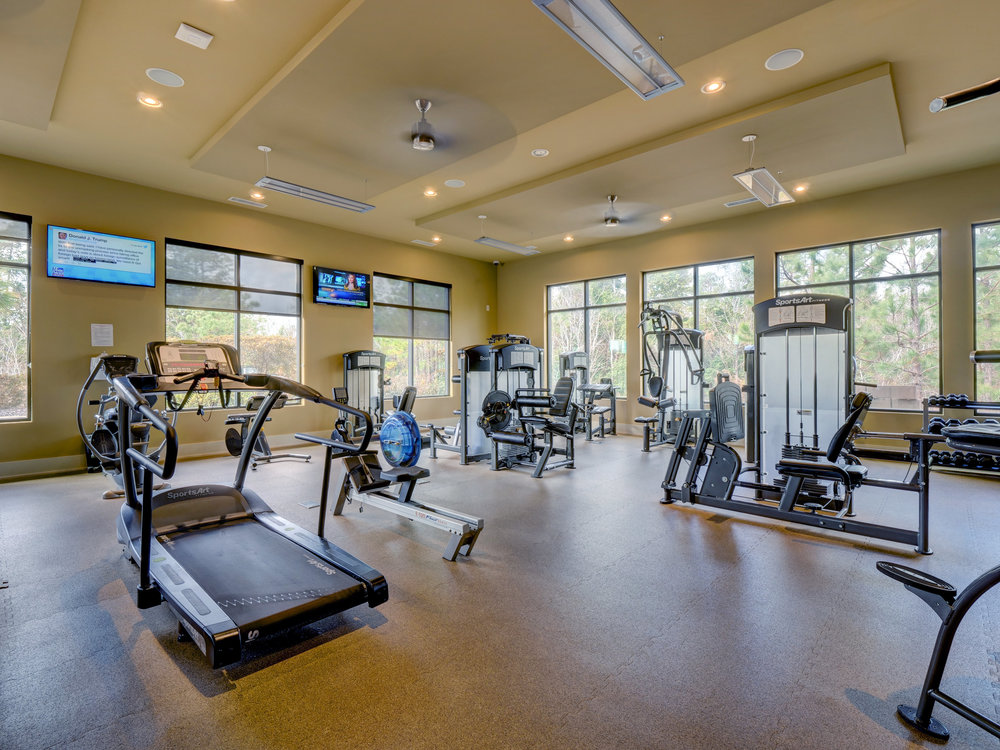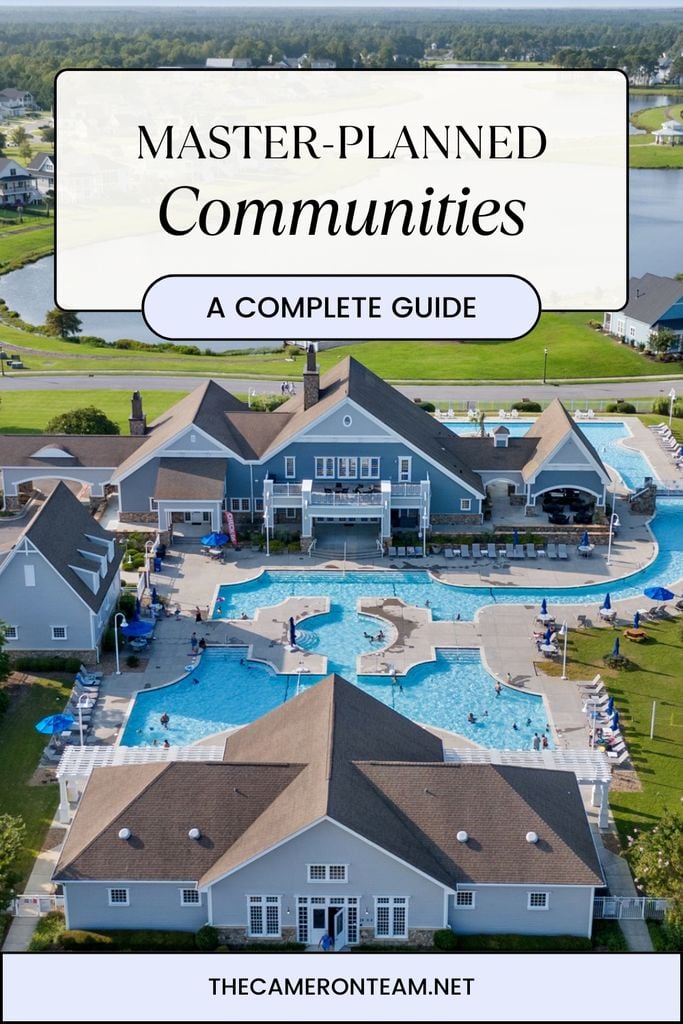One of the terms you’ll frequently see when searching for homes for sale in Wilmington, North Carolina, and the surrounding areas of Southeastern NC is “master-planned community”. While this may just sound like a fancy term for a
What Is a Master-Planned Community?
A master-planned community (MPC) is a large-scale residential neighborhood that’s been meticulously designed to provide residents with a wide range of amenities and housing options. Unlike traditional neighborhoods, which tend to develop organically over time, MPCs are pre-planned from start to finish. Developers focus on creating a cohesive environment by offering homes, schools, recreational areas, shopping centers, and more—all with an eye on fostering a sense of community.
Think of MPCs as the “whole package” kind of neighborhood. They’re intentionally crafted with a blend of residential, commercial, and sometimes even industrial spaces, often offering a variety of architectural styles and amenities like parks, pools, and community centers.
Benefits of Living in a Master-Planned Community
1. Access to Amenities One of the major draws of MPCs is the impressive array of amenities. From swimming pools and fitness centers to golf courses and walking trails, there’s usually something for everyone. These amenities can enhance your quality of life and make everyday living more convenient and enjoyable.
2. Sense of Community MPCs are designed with social interaction in mind. With events like block parties, fitness classes, and holiday celebrations, these communities aim to encourage residents to build relationships and foster a sense of belonging. The design often incorporates communal spaces and walkable areas to bring people together.
3. Well-Maintained and Aesthetic Environment Uniform guidelines and architectural controls ensure that the community maintains a consistent look and feel. MPCs typically come with beautiful landscaping, decorative street lighting, and aesthetically pleasing home designs, contributing to a sense of pride among residents.
4. Increased Security Many MPCs are gated or have private security patrols, making them feel safer than other neighborhoods. Features like neighborhood watch programs and monitored entrances can offer peace of mind to residents.
5. Variety of Housing Options Because MPCs are designed with diverse needs in mind, they often offer a variety of housing options—ranging from townhomes and condos to single-family homes and luxury estates. This diversity allows individuals, families, and seniors to find housing that meets their needs.
Disadvantages of Living in a Master-Planned Community
1. Homeowner Association (HOA) Regulations While HOAs help maintain the quality and value of homes in an MPC, they often come with strict rules and regulations. From paint color restrictions to landscaping requirements, living in an MPC might mean adhering to rules that can limit your personal choices.
2. HOA Fees Those amenities and community features come with a price. HOA fees can vary greatly depending on the size of the community and the amenities provided. Over time, these fees can add up and affect your monthly budget.
3. Limited Personalization Because of strict architectural guidelines, you may have limited freedom to make changes to your property. For instance, putting up a specific type of fence or altering the facade of your home may be prohibited by the HOA, restricting how much you can personalize your home.
4. Possible Lack of Privacy With communal spaces like parks, pools, and activity centers, MPCs can feel bustling, and sometimes that sense of community might feel a bit too close for comfort. If you prefer seclusion or a quieter environment, this type of neighborhood may not be for you.
5. Uniformity If you’re someone who likes variety and character in your surroundings, the uniform appearance of many MPCs might feel somewhat monotonous. While these communities are well-maintained, their uniform look may not appeal to those who prefer neighborhoods with more architectural diversity and individuality.
The Importance of Reading HOA Documents Before Buying
Before you make an offer on a home within an MPC, it’s crucial to thoroughly read the Homeowner Association (HOA) documents. Why? Because these documents lay out the rules, fees, and guidelines you’ll have to follow as a resident. Here’s a breakdown of what you should look for:
- Restrictive Covenants: These are the rules dictating what you can and cannot do with your property. This can include everything from the color of your front door to whether you’re allowed to park a boat on your driveway.
- Architectural Guidelines: Want to add a deck, a pool, or a new fence? The architectural guidelines will let you know what’s permitted—and what’s not. They often outline the process for getting approval for any modifications to your property.
- Rules and Regulations: This can cover anything from pet policies to noise restrictions. It’s important to be aware of these rules so you don’t find yourself unintentionally breaking any of them.
- HOA Fees and Assessments: Make sure you understand the monthly or annual fees associated with living in the community and how they might increase over time. Also, look out for any special assessments that could be levied to cover unexpected repairs or new projects.
Neglecting to read these documents could lead to unwelcome surprises after you’ve moved in, so it’s always better to know exactly what you’re getting into.
Key Questions to Ask Yourself Before Buying in a Master-Planned Community
Before committing to living in an MPC, ask yourself these crucial questions:
- What Amenities Are Truly Important to Me? While the pools, parks, and sports facilities might seem enticing, make sure they align with your lifestyle and that you’ll actually use them. Don’t pay extra HOA fees for amenities you won’t enjoy.
- Do I Agree with the HOA’s Rules and Regulations? Carefully review the rules outlined in the HOA documents. If you can’t live with certain restrictions, it’s better to find out before you buy.
- How Do I Feel About HOA Fees? Are the fees manageable within your budget? And more importantly, do they seem fair considering the amenities and services provided?
- Am I Comfortable with the Level of Uniformity? MPCs often have a “cookie-cutter” vibe due to their design guidelines. Ask yourself if that’s something you’re comfortable with or if you prefer a more diverse, less restrictive environment.
- Is the Community Aligned with My Lifestyle? Think about the community’s vibe. Is it family-friendly, or more geared towards retirees? Is it close to work, schools, or your favorite hangouts? Make sure it fits your daily lifestyle and future plans.
Wrapping Up
When deciding whether a master-planned community is right for you, consider both the perks and the limitations. MPCs offer a cohesive, well-maintained environment with amenities and a sense of community, but they come with their own set of rules and costs. Thoroughly reviewing HOA documents and reflecting on your lifestyle can help ensure you’re making an informed decision.

